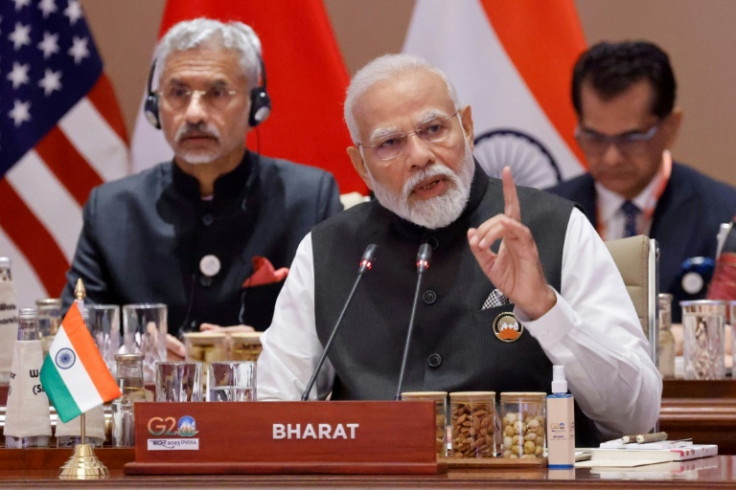Countries With Influence Are Resisting Change In A World Of 'Double Standards': Indian Minister

KEY POINTS
- India's External Affairs Minister S Jaishankar made the remarks at an event in New York over the weekend
- Influential countries, like the ones in the UN Security Council, are resisting the pressure to change, he said
- The G20 presidency was challenging due to the North-South divide, Jaishankar also said at another event
It's a world of "double standards," declared India's External Affairs Minister S Jaishankar during a Ministerial Session at an event titled "South Rising: Partnerships, Institutions and Ideas" in New York.
At a time when developing nations, including India, are pushing for a rebalancing of global power, Jaishankar said countries with influence are resisting change even if they "mouth the right things."
"Those who are occupying positions of influence, we see this in the UN Security Council most of all, are resisting the pressure to change," said the Indian minister at the Saturday event, hosted by the Observer Research Foundation, in collaboration with the Permanent Mission of India to the United Nations, United Nations India and the Reliance Foundation in New York.
"Those who are economically dominant today are leveraging their production capabilities and those who have institutional influence or historical influence have actually weaponized a lot of those capabilities as well," Jaishankar said.
"They will all mouth the right things, but the reality is still today, it's a world very much of double standards," he added.
India has been making an active push for a seat at the global decision-making table, including a renewed pitch for UN Security Council reforms during the G20 presidency.
In order to materialize India's vision of a multipolar order, New Delhi appears to be rallying together developing nations and promoting deeper South-South cooperation. A number of nations have also accepted India's role as a frontrunner, which can use its position in international forums to cast a light on issues faced by developing nations.
"The global south would like to see a synchronized move for peace and prosperity with an equal opportunity in all major international organizations with transparency and trust," S.P. Sharma, chief economist at PHD Chamber of Commerce and Industry, told International Business Times.
"Current global south cooperation is creating a polycentric world order by providing a viable alternative to global north," Sharma added. "The global south represents 60% of the global GDP and 85% of the world's population thus a developed global south could lead to inclusive, universal and resilient global development."
Jaishankar's visit to the U.S. comes weeks after India hosted the G20 summit earlier this month. His stay in New York is primarily to attend the annual session of the UN General Assembly.
Over the weekend, Jaishankar also hosted the "India-UN for Global South: Delivering for Development" event in New York, and said India's G20 presidency was challenging because of the deep North-South divide.
"We meet just a few weeks after the New Delhi G20 Summit. A Summit which took place on the theme of 'One Earth, One Family, One World,'" Jaishankar said.
"It was a challenging Summit, it was a challenging presidency because we were confronting a very sharp East-West polarization and a very deep North-South divide. But we were very determined as the presidency of the G20 to make sure that this organization was able to get back to its core agenda which was of global growth and development," he added.
India's advocacy for South-South cooperation comes at a time when developing nations are finding their own place in the changing world order. Global partnerships are being rethought in the aftermath of COVID-19 as well as Russia's brazen invasion of Ukraine.
Jaishankar made strong statements last year when the West had eyes on India to pick a side with respect to the Ukraine conflict. The Indian minister criticized Western countries for putting together a massive uproar in slamming Moscow, but being generally silent when it comes to developments in Asia.
"Somewhere Europe has to grow out of the mindset that Europe's problems are the world's problems but the world's problems are not Europe's problems," Jaishankar said last year.
"If I were to take Europe collectively, which has been singularly silent on many things which were happening, for example in Asia, you could ask why would anybody in Asia trust Europe on anything at all," he added.
© Copyright IBTimes 2024. All rights reserved.






















